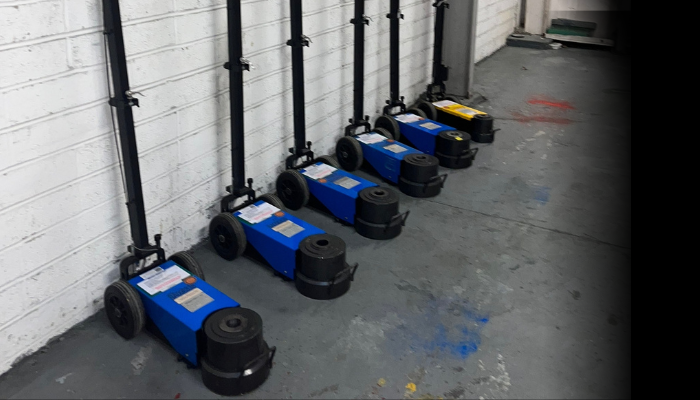Annual Load Testing of Hydraulic Jacks

We recently received an order from a client in the aviation industry for load testing of pneumatic hydraulic jacks. Load testing should be done on a yearly basis and is an integral part of maintaining and ensuring the safety of your jacks as well as mitigating against any risks using jacks may pose. Overtime, jacks can become worn or damaged, which can compromise their ability to lift and support heavy loads. To ensure that your jacks are in good working condition and safe to use, it is important to conduct annual load testing. Here at ATC we offer that service.

Load testing is used to ensure that a structure or system is safe and can withstand the loads it is expected to encounter during normal operation. The jacks we receive are load certified using our 100 ton press. It is very important to us that, when testing the jacks, all safety guidelines and procedures are followed. This includes wearing appropriate personal protective equipment, such as gloves and safety glasses, and making sure that the area around the jack is clear of any obstacles or hazards.
Load Testing

Pneumatic hydraulic jacks are mechanical lifting devices that use pressurized gas (usually compressed air) to operate a hydraulic system. Before using the jack it is in integral that you check the general condition of the jack, as well as oil levels. You must also check the trapezoidal thread of the extension screw for dirt and clean it if necessary. If greasing is required, or if the jack is unserviceable, call the Office of Technology Evaluation (OTE) for assistance.

We tested two different kinds of pneumatic hydraulic jacks for our customer in the aviation industry. The first jack, pictured in blue, is used to lift loads of up to 80 tons. While the second jack, pictured in yellow, is used to lift loads of up to 30 tons.

Overall, annual load testing is a crucial step in maintaining the safety and reliability of your jacks. By regularly testing your jacks, you can ensure that they are able to support heavy loads safely and effectively.
Contact us if you would like to dramatically reduce the potential risk jacks may pose to our clients.
Click here if you would like to read more about our mechanical news and case studies.

